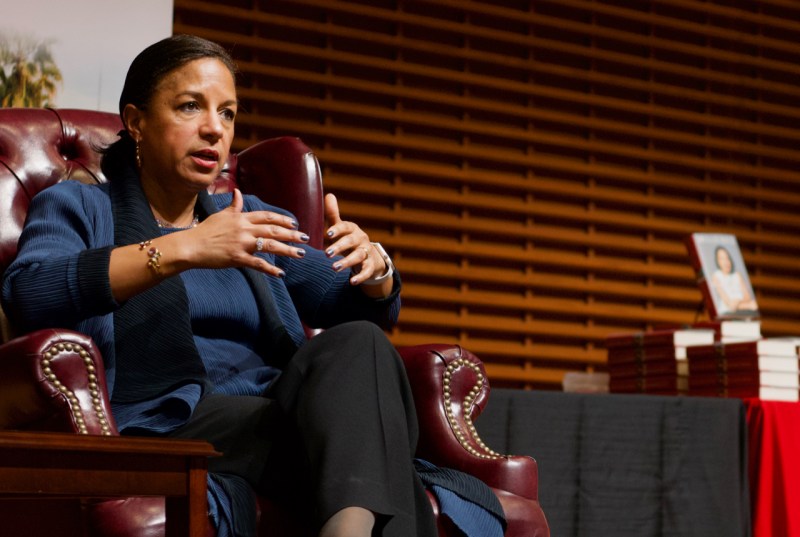“Our domestic political divisions are our greatest national security threat,” said Susan Rice ’86, former U.S. Ambassador to the United Nations, at a Tuesday talk on campus. Rice, who has also served as U.S. National Security Advisor, was promoting her recent memoir “Tough Love: My Story of the Things Worth Fighting For.”
The conversation, hosted by the Freeman Spogli Institute (FSI) and co-sponsored by Stanford in Government (SIG), was moderated by FSI Director and Senior Fellow Michael McFaul. It focused on Rice’s personal and professional experiences, as well as her advice for bridging political divides to strengthen the country.
“Family, education, equality, national unity and preservation of our democracy are things worth fighting for,” Rice said.
She explained the motivations behind her memoir’s title, describing “tough love” as the method by which she navigated relationships as a senior government official.
“Tough love is loving fiercely but not uncritically,” she said. “[It has] encompassed many aspects of my personal and professional life.”
Rice contended that domestic political divisions are the most pressing national security issues, arguing that internal divisions give adversaries openings to attack the United States.
“[Political divisions] are a problem of our own creation, and therefore are a problem we have the capacity to address,” she said.
Rice also reflected on her experience as a mother and policymaker, drawing comparisons between the roles. Rice specifically addressed the different political views held within her immediate family. Her son, John Rice-Cameron, is an active member of the Stanford College Republicans (SCR) and was previously the club’s president.
“Despite these differences we’ve chosen to remain a loving, unitary and mutually supportive family,” Rice said.
She added that listening and learning from different perspectives is critical in bridging political divides.
“That’s what we’ve got to do on a national level,” she said.
Despite her concern about the current political climate, Rice expressed hope that the country would emerge unified and stronger. Rice suggested the introduction of a mandatory national service as a means of teaching civics, tolerating dissent and fostering dialogue between political extremes.
“Nobody’s ever won by betting against U.S. capacity to grow and renew and change itself,” she asserted.
Why is Rice writing her memoir now? As a member of the Obama administration, she spoke on behalf of the government. Now, she said, she wants to tell her own story.
As a descendant of Jamaican immigrants and slaves, Rice highlighted her family background in her talk.
“Their history and experience fully defines who I am,” she said.
During the Q&A section of the talk, Rice was asked about her approach to foreign policy and working in the White House.
“Leadership is a team sport, not individual,” she said. “My approach to dealing with crises was to push through and focus on the task at hand.”
Rice, who majored in history at Stanford, commented on her dedication to balancing pragmatism with a commitment to human rights. She urged that the United States, when possible, should be a defender of human rights.
“Just because we cannot intervene everywhere doesn’t mean we shouldn’t intervene anywhere,” she said.
Contact Brooke Beyer at bbeyer ‘at’ stanford.edu.
